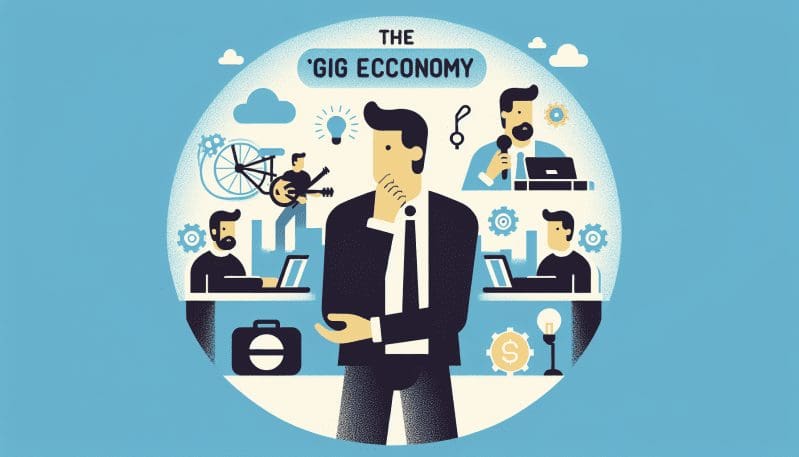As the gig economy burgeons, a legion of freelancers and independent contractors now find themselves navigating the choppy waters of modern employment, where the siren song of flexibility and autonomy often masks the rocky shores of insecurity and vulnerability. This new labor landscape, while offering unprecedented freedoms, also raises poignant questions about the future of work and the rights of those who power this economic engine.
The allure of the gig economy lies in its promise to break away from the rigidity of the 9-to-5 grind. Workers are seduced by the ability to choose their hours, select diverse projects, and the potential for a better work-life balance. Digital platforms have made it easier than ever for people to connect with a global marketplace of services, turning personal skills and passions into income streams.
However, this glossy narrative is often one-sided. The flip side reveals a world where gig workers may be deprived of the predictable paychecks, health insurance, retirement plans, and paid time off that traditional employment offers. The stability once guaranteed is now replaced by a precariousness that leaves many one gig away from financial distress. Moreover, the lack of job security can also mean an absence of collective bargaining rights, leading to lower wages and a diminishment of workplace protections.
In this ever-evolving gig landscape, the role of regulation and worker unions has never been more critical. Governments are starting to grapple with ways to extend protections to gig workers without stifling the innovation that drives the gig economy. Worker unions, traditionally aligned with permanent employees, are now expanding their outreach to the gig workforce, advocating for rights such as minimum wage guarantees and access to insurance benefits.
The impact on long-term career development is also a point of contention. While gig work can provide valuable experience and a portfolio of work, it often lacks the career progression and skill development opportunities that come with more permanent roles. This raises questions about whether the gig economy is truly transformative or merely a stopgap for the workers between traditional jobs.
Analyzing whether the gig economy is a force for good or a regression disguised as progress, it’s clear that a nuanced approach is necessary. For the gig economy to be sustainable and equitable, there must be concerted efforts to ensure that flexibility does not come at the expense of fundamental worker rights. Strategic approaches involving collaboration between workers, companies, and policymakers will be paramount. Initiatives could include creating portable benefits that follow gig workers from job to job, establishing clear and fair terms of service for platform work, and promoting education around the rights and responsibilities of gig employment.
In conclusion, the gig economy stands at a crossroads of potential and peril. As it reshapes the fabric of the labor market, the ecosystem of work must evolve to protect the dignity of labor, nurture the growth of its participants, and ensure that the autonomy it provides doesn’t lead to exploitation. It is only through a vigilant and progressive approach that the gig economy can embody the best of both worlds: the freedom of freelance with the security of full-time employment.




























